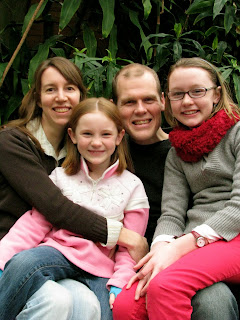As you can see from the list on the right, there is no shortage of reading going on in our home. Actually many of the books listed are listened to in the car, while several others are being read on the couch. One person in our family is even known to read 3 books at once (one for upstairs, one for the main floor, and one for 'other' of course). And it's no secret that we are
big fans of the
library.
So it's no surprise that I'm really enjoying this latest library loan.
Over the years I've read many personal finance books. I figured it was my way of contributing financially to our family since I stepped away from my career 10 years ago to raise kids. (Has it been that long? My, how time flies when you are doing laundry! Not.) I've read Dave Ramsey, The Millionaire Next Door, The Automatic Millionaire, and others. And, yes, I've learned a thing or two from each one.
But none of those comes close to the paradigm shift that this book presents.
And I love it because it makes sense. Even though our family doesn't have much money or worldly assets, I really do feel like we live abundantly. I sometimes joke that we are "rich in eggs," "rich in music," or "rich in firewood!"
But back to the paradigm shift. For starters, it's frustrating to read financial books that were written before the Great Recession (are we still calling it that?) because I find them irrelevant. It's also unsettling to read books that advocate for more, more, more.
This book brought up so many points that seem healthy and sustainable. I'll share with you some notes that I found myself scribbling as I read.
Page 22 "Reimagining wealth is not only beneficial, but inevitable... to proactively usher in this transition is better than having it imposed upon us." I agree!
Page 22 The author wonders "if the assumed version of wealth...actually bespeaks a certain poverty." Yes! I have sensed this all along! The author questions the notions "time is money" because it tries to monetize time and "it takes money to make money." Do you own your time, or does your time own you? Happiness comes from being in charge of your own time. Think how you feel stuck in a traffic jam! (We're happy as long as we've got our book on tape!)
Page 58 The author describes the life of a friend, a life that is "profoundly abundant in ways that have become increasingly rare in contemporary America: freedom, community, choice, good health, and simple happiness." In contrast, the irony "is that we trade real wealth for illusory riches."
Page 90 It's tricky to navigate modern life because "the current monetary policy seems to monetize and commodify almost every aspect of our well-being."
Page 99 "The workings of our money system and the manner in which it pits us against the environment, each other, and ultimately ourselves is so nonsensical that it becomes repellant" which sheds light on
my aversion to Christmas.
Page 131 To improve our monetary system, we "need only to reimagine and revalue ourselves." That sounds like fun!
But the biggest takeaway from this whole book is the idea that money is debt, and with every mortgage that's given to an eager family, our dollars are deflated because the money that's loaned to buy the house was just created out of thin air, and in turn increases inflation. Which makes the tradition in some countries of giving a home to your child as a wedding gift, seem much smarter.
So, what to do now? Rethink that mortgage. Question the American Dream. And consider a
homemade Christmas.
How about you?


























































